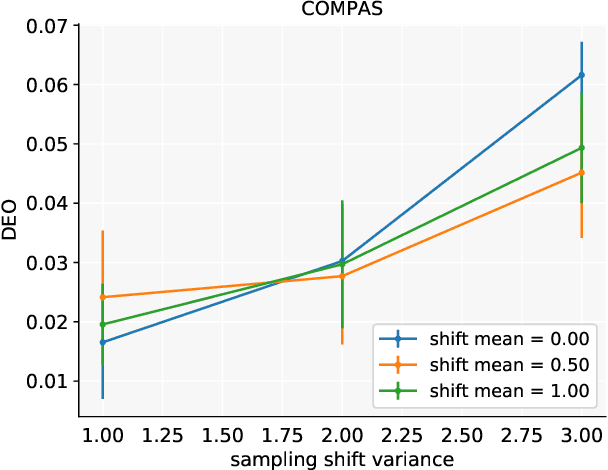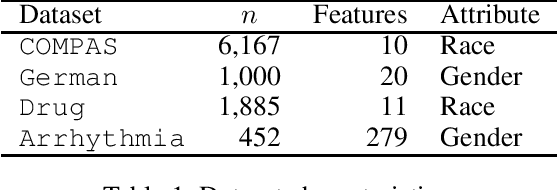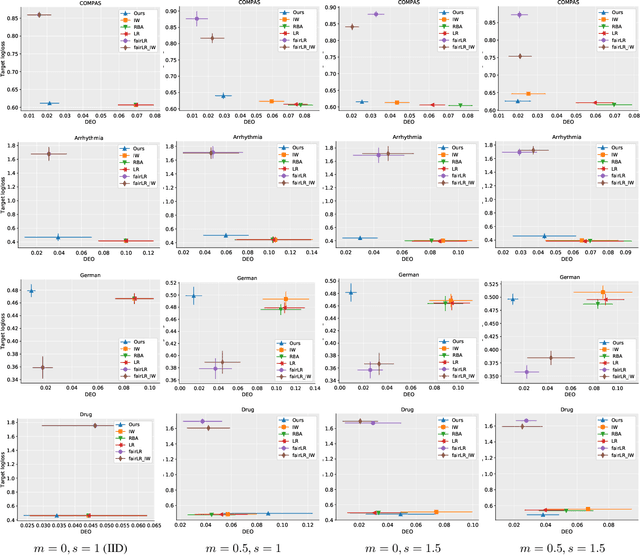Robust Fairness under Covariate Shift
Paper and Code
Oct 17, 2020


Making predictions that are fair with regard to protected group membership (race, gender, age, etc.) has become an important requirement for classification algorithms. Existing techniques derive a fair model from sampled labeled data relying on the assumption that training and testing data are identically and independently drawn (iid) from the same distribution.In practice, distribution shift can and does occur between training and testing datasets as the characteristics of individuals interacting with the machine learning system -- and which individuals interact with the system -- change. We investigate fairness under covariate shift, a relaxation of the iid assumption in which the inputs or covariates change while the conditional label distribution remains the same. We seek fair decisions under these assumptions on target data with unknown labels.We propose an approach that obtains the predictor that is robust to the worst-case in terms of target performance while satisfying target fairness requirements and matching statistical properties of the source data. We demonstrate the benefits of our approach on benchmark prediction tasks.
 Add to Chrome
Add to Chrome Add to Firefox
Add to Firefox Add to Edge
Add to Edge